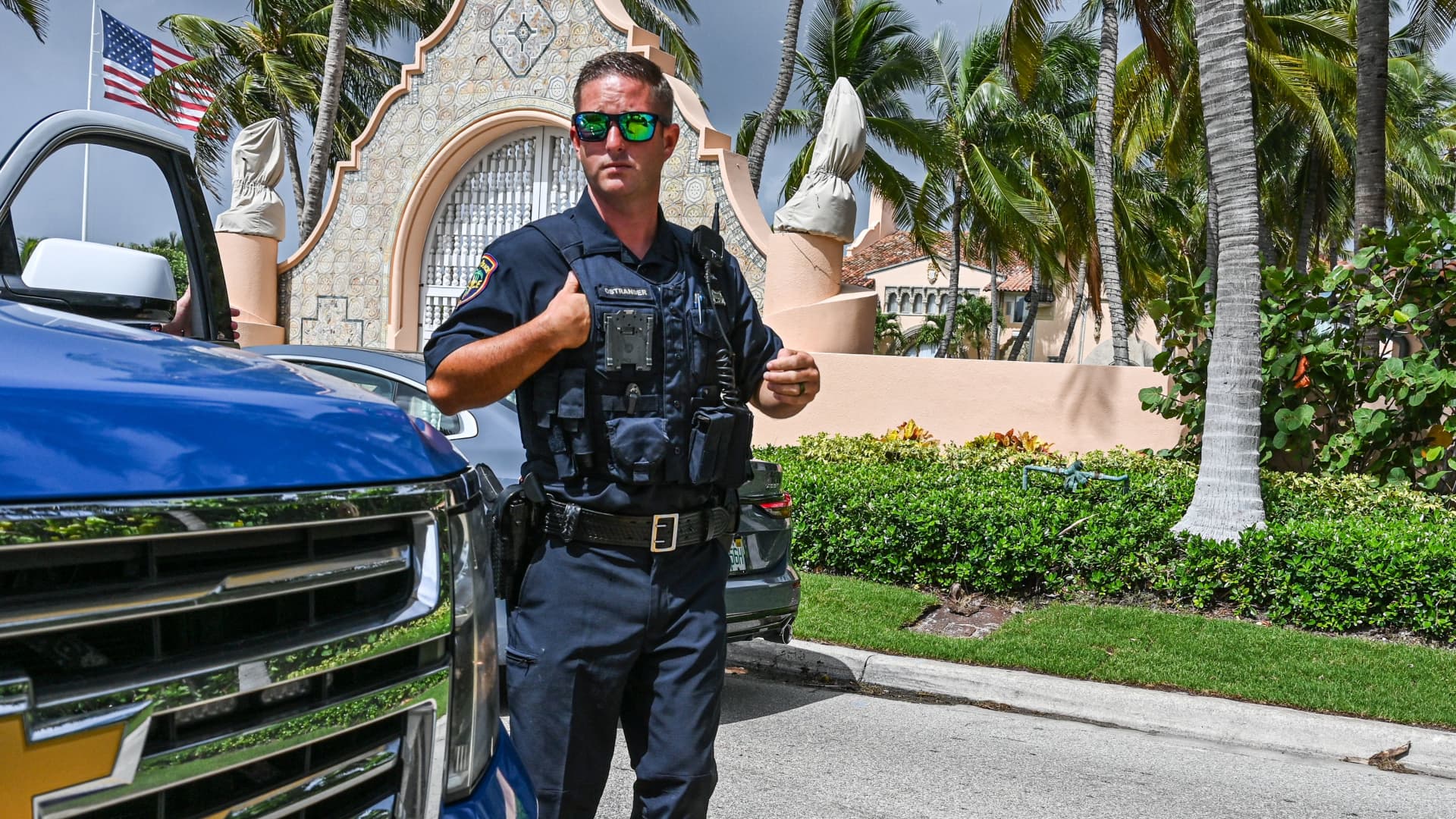The Justice Department on Friday revealed a heavily redacted copy of the affidavit used to obtain a search warrant for former President Donald Trump‘s home Mar-a-Lago.
The FBI had probable cause to believe that records containing classified national defense information would be found at the Palm Beach, Florida, residence, according to an agent who wrote the 32-page affidavit.
“There is also probable cause to believe that evidence of obstruction will be found” at Trump’s home, read an unredacted portion of the affidavit.
A federal judge had ordered the key document’s release over the objections of the DOJ, which argued it contains highly sensitive facts about the ongoing criminal investigation into Trump. U.S. Magistrate Judge Bruce Reinhart accepted the DOJ’s proposed redactions to the affidavit one day before it was made public.
Click here or scroll down to read the heavily redacted affidavit.
“The government is conducting a criminal investigation concerning the improper removal and storage of classified information in unauthorized spaces, as well as the unlawful concealment and removal of government records,” the FBI agent, whose name was blacked out, wrote in the affidavit’s first line.
The agent then wrote that the probe began because of a referral from the National Archives and Records Administration in February, after NARA received 15 boxes of records from Trump’s residence in Florida. By law, presidential records must be turned over to the National Archives when a president departs office.
The FBI found that in those boxes were documents that bore classification markings, and included records relating to national defense information, which had been stored at Mar-a-Lago in an unsecured location.
The 15 boxes included 184 specific documents marked classified, 67 of which were marked “confidential,” 92 marked “secret” and 25 documents marked “top secret,” according to the affidavit.
“Based upon this investigation, I do not believe that any spaces within the PREMISES have been authorized for the storage of classified information at least since the end of FPOTUS ‘s Presidential Administration on January 20, 2021,” the agent wrote in the affidavit.
Of the 32 pages of the affidavit, 21 pages are almost totally or significantly blacked out.
The search warrant itself was revealed voluntarily by the DOJ less than a week after the Aug. 8 raid. The warrant indicated that FBI agents were looking for materials showing violations of laws against obstruction of justice and the removal of official records, as well as the U.S. Espionage Act.
The FBI took at least 20 boxes of items in the August raid, including numerous sets of highly classified documents, according to a property receipt that was also made public by the DOJ.
In a social media post after the redacted affidavit was released, Trump accused the FBI and DOJ of “public relations subterfuge” by the fact that the word “Nuclear” did not appear in the document — though he also noted that it was “heavily redacted!!!” The affidavit did not detail the specific content of documents it expected to find.
Trump also lashed out at Reinhart, arguing that he should have recused himself from this matter because he had previously removed himself from another case involving the former president. The reason for that recusal was not clear, news outlets reported, but Trump claimed it was “based on his animosity and hatred of your favorite President, me.”
The government argued last week against releasing the affidavit, even in a redacted form.
“The redactions necessary to mitigate harms to the integrity of the investigation would be so extensive as to render the remaining unsealed text devoid of meaningful content,” read a court filing from Jay Bratt, head of the counterintelligence and export control section of the DOJ’s National Security Division.
Bratt also argued that the affidavit “would serve as a roadmap to the government’s ongoing investigation” if disclosed.
Reinhart disagreed, and ordered the government to propose redactions to U.S. District Court in West Palm Beach, Florida, by Thursday. The judge accepted the DOJ’s redactions later that day.
The government said last week that the Mar-a-Lago raid is part of a probe that “implicates national security” and is still in its “early stages.”
Trump, who first revealed the FBI’s search of his Florida residence, has cast himself as the victim of a political attack by the Biden administration that was carried out against the presumptive Republican front-runner in the 2024 presidential race.
The former president on Monday sued the government, asking a federal judge to block the DOJ from poring over the documents seized from Mar-a-Lago until a court-appointed third party reviews them.
“The political Hacks and Thugs had no right under the Presidential Records Act to storm Mar-a-Lago and steal everything in sight, including Passports and privileged documents,” Trump said in a social media post earlier Friday morning.
